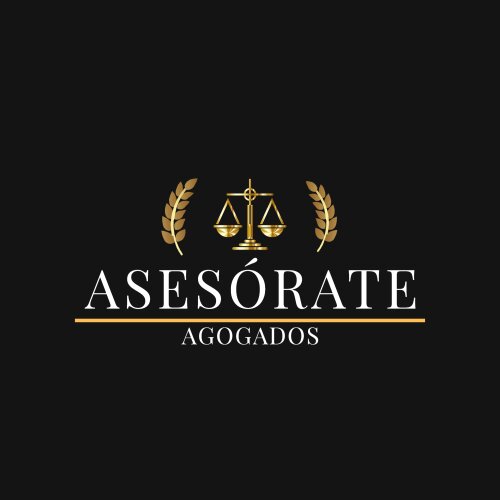Best Military Law Lawyers in Colombia
Share your needs with us, get contacted by law firms.
Free. Takes 2 min.
Or refine your search by selecting a city:
List of the best lawyers in Colombia
About Military Law in Colombia
Military Law in Colombia is a specialized legal field focused on the governance, regulation, and control of the Colombian National Army, Air Force, and Navy. It is a distinct body of law that deals with the conduct, responsibilities, and rights of military personnel. This area of law encompasses a variety of legal issues including discipline, conduct in military operations, and interactions with civilians. Military law predominantly aligns with international legal standards and Colombian national laws, including the Constitution and specific military laws and regulations.
Why You May Need a Lawyer
There are several reasons why an individual might seek legal counsel in the field of Military Law in Colombia. Common situations include facing military trials or disciplinary actions, needing advice regarding military rights and duties, responding to accusations of misconduct, and dealing with issues related to military compensation or benefits. Moreover, legal assistance may be necessary when involved in situations concerning international laws of war, or if a military action resulting in harm or dispute necessitates judicial review or redress.
Local Laws Overview
Military law in Colombia is primarily governed by the Military Penal Code, which outlines offenses and procedures applicable to military personnel. Key aspects include regulations on military discipline, codes of conduct during service, and guidelines for military justice and court martial proceedings. Additionally, Colombia's Constitution and international agreements to which Colombia is a signatory influence the scope of military operations and the treatment of personnel. Compliance with international humanitarian law, particularly during armed conflicts, is also a critical component.
Frequently Asked Questions
What is the Colombian Military Penal Code?
The Colombian Military Penal Code is a legal framework that governs offenses, penalties, and judicial processes specific to military personnel and their conduct both in and out of active duty.
Who is subject to Military Law in Colombia?
Military Law in Colombia applies to all members of the Colombian National Army, Navy, and Air Force, including active duty personnel and, in some cases, reservists.
Can civilians be subject to Military Law in Colombia?
Generally, civilians are not subjected to Military Law. However, under specific circumstances that involve military installations or operations, certain legal proceedings may involve civilian individuals.
What is a court martial and when does it occur?
A court martial is a judicial proceeding used to try members of the military accused of offenses under military law. It occurs when a military member is charged with an offense that warrants formal judicial review.
What rights do military personnel have under Colombian law?
Military personnel have the right to due process, legal representation, and protection from unlawful actions while fulfilling their duties. They are also entitled to the same basic human rights as civilians under the Colombian Constitution.
What is the role of military ombudspersons in Colombia?
Military ombudspersons serve as a bridge between military authorities and service members to ensure fair treatment, address grievances, and facilitate transparency in the handling of military justice cases.
Are there specific lawyers for military legal matters?
Yes, some lawyers specialize in military law and are equipped with the expertise needed to handle matters related to military justice, rights, and discipline specific to the armed forces.
Is there legal assistance available for family members of military personnel?
Family members of military personnel may receive legal assistance in specific cases, such as issues pertaining to benefits and military-related disputes impacting family well-being.
How does military law interact with international humanitarian law?
Military law must comply with international humanitarian standards, especially in armed conflict scenarios. This includes adherence to the Geneva Conventions and other international treaties.
What should one do if they believe their military rights have been violated?
It is advisable for individuals to consult with a military lawyer or legal advisor to assess the situation and explore remedies available under military or civilian judicial systems.
Additional Resources
Individuals seeking guidance on Military Law in Colombia may find the following resources useful: the Colombian Ministry of National Defense for legal guidelines and support, the Inspector General's Office for grievances and oversight, and legal clinics at universities offering military law advice. Additionally, human rights organizations may provide guidance for issues involving international law.
Next Steps
If you need legal assistance in the field of Military Law, it is crucial to engage with a lawyer specializing in this domain. Begin by gathering relevant documents related to your case, such as official military communication, reports, or personal records. Contact a qualified attorney or a legal aid organization to schedule a consultation. During the meeting, discuss your situation comprehensively and explore the legal options available to resolve your matter effectively.
Lawzana helps you find the best lawyers and law firms in Colombia through a curated and pre-screened list of qualified legal professionals. Our platform offers rankings and detailed profiles of attorneys and law firms, allowing you to compare based on practice areas, including Military Law, experience, and client feedback.
Each profile includes a description of the firm's areas of practice, client reviews, team members and partners, year of establishment, spoken languages, office locations, contact information, social media presence, and any published articles or resources. Most firms on our platform speak English and are experienced in both local and international legal matters.
Get a quote from top-rated law firms in Colombia — quickly, securely, and without unnecessary hassle.
Disclaimer:
The information provided on this page is for general informational purposes only and does not constitute legal advice. While we strive to ensure the accuracy and relevance of the content, legal information may change over time, and interpretations of the law can vary. You should always consult with a qualified legal professional for advice specific to your situation.
We disclaim all liability for actions taken or not taken based on the content of this page. If you believe any information is incorrect or outdated, please contact us, and we will review and update it where appropriate.
Browse military law law firms by city in Colombia
Refine your search by selecting a city.















